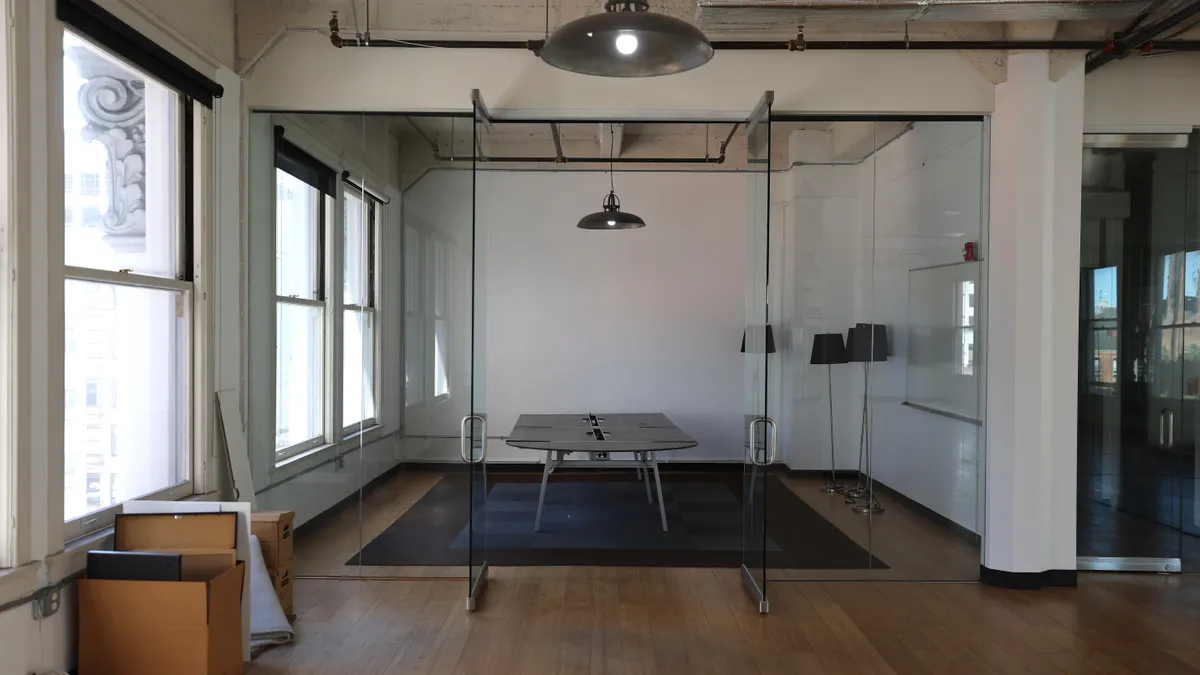Dive Brief:
- Amid return-to-office debates, 82% of U.S. hiring managers at companies that worked remotely during the pandemic said their organizations planned to continue to allow staff to perform their duties offsite, according to the results of a Harris Poll survey commissioned by Express Employment Professionals.
- The poll, which surveyed 1,003 respondents during May 2022, also found that 59% of hiring managers said remote work had a positive impact on their organizations, with 39% reporting no change in employee productivity during COVID-19 compared to in-office times. Conversely, 37% said they observed increased productivity during the pandemic.
- Retention and attraction of talent were the most frequently cited reasons for maintaining remote work, Express Employment Professionals said, with other respondents citing health and safety; employee preference; productivity; and lower overhead costs.
Dive Insight:
Flexible work options are not always feasible, but if an employer can offer them without risking productivity, it may be wise to do so, Express Employment Professionals CEO Bill Stoller said in a statement. Retention is a large part of that calculus; HR professionals in a recent IWG survey said hybrid work helped their organizations reduce turnover among vulnerable groups, such as those with child care issues and those dealing with mental health concerns.
If employers are struggling to maintain hybrid work, it may be worth checking in with managers and teams to ensure employees have access to items that make working from home easier, such as stand-up desks and lighting fixtures, speakers at a recent Quartz webinar said. Other suggestions at the event included adjusting workflows to better accommodate when employees are most productive and engaging in one-on-one coaching to build trust between employees and managers.
Though flexibility may enjoy popularity with many job candidates, poorly designed flexible work systems can actually harm retention, according to a November Unit4 survey. Additionally, not all employees want the same level of interaction between their work and home lives. A Gallup report published this month found that while some workers may prefer to blend work and life together, others prefer to split the two entirely.
In-person work could yield benefits, too. A report published by the Institute for Operations Research and the Management Sciences found that having proximity to senior managers may facilitate creativity for inventors in the research and development field.
Should employers decide on a more direct return to the office, they may need to ensure that doing so does not run afoul of workplace equal opportunity laws, particularly the Americans with Disabilities Act. Additionally, hasty return-to-office decisions could risk harming trust between employees and management.
But even companies that decide on maintaining some degree of flexibility may benefit from occasional in-person gatherings. The holiday season could serve to remind employers of those potential benefits; more than half of companies in a recent Challenger, Gray and Christmas survey said that they planned to host in-person holiday parties in 2022.













